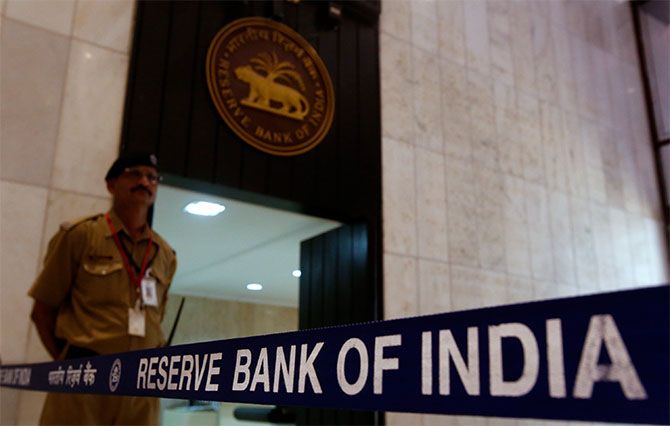The RBI had in the past expressed its concerns about allowing foreign investors in short-term paper, because it attracted hot money.

The Reserve Bank of India, in an attempt to keep foreign investors invested in the local bond market, late on Friday said they could invest in any maturity they wished for instead of the restrictive clause earlier that the investment must be in paper that had at least three years left to mature.
“The minimum residual maturity requirement for central government securities and state development loan categories stands withdrawn, subject to the condition that investment in securities with residual maturity below one year by an FPI under either category shall not exceed, at any point of time, 20 per cent of the total investment of that FPI in that category,” the RBI said in a notification on its website.
In case of corporate bonds, the minimum residual maturity will be one year now, relaxed from three years earlier.
The RBI had in the past expressed its concerns about allowing foreign investors in short-term paper, because it attracted hot money. The residual maturity cap was introduced on July 23, 2014, with an aim to bring long-term investors into the local market.
The net investment by FPIs in debt was positive in January but has turned negative since February. In April, FPIs have sold Rs 121.17 billion in bonds and Rs 52.94 billion in equities.
One of the reasons for introducing such a cap was that India was attracting healthy foreign exchange and the rupee was appreciating from its record low of 68.87 to a dollar reached in August 2013.
However, now the situation has reversed. Foreign investors are seen leaving the country, particularly from the debt segment, as local yields zoom and system liquidity dries up. From 6.5 per cent in August last year, the 10-year gilt yield has risen to about 7.75 per cent now. This has led to huge losses, both real and mark-to market, for all investors, including FPIs.
“FPIs are facing a currency risk owing to the rupee’s depreciation and rising MTM losses. They can live with the currency risk, but MTM losses are hard to swallow,” said Harihar Krishnamurthy, head of treasury at FirstRand Bank.
According to Krishnamurthy, the latest measures will help cool off yields and encourage foreign investors to remain invested in India. The risk of MTM losses is considerably lower in short-term bonds.
RBI Deputy Governor Viral Acharya recently said banks should manage risks better by cutting down on duration risk, which essentially means investing in shorter tenure paper. The government also proposed issuing more short tenure paper in its borrowing programme for the first half of 2018-19 to allow banks to reduce their duration risk.
RBI withdraws minimum maturity cap on bonds for FPIs
- Earlier, FPIs were allowed to invest in bonds maturing in at least three years
- Investment below one year should not be more than 20% of the book
- Minimum residual maturity cap for corporate bonds now at one year, down from earlier cap of three years
- Cap on aggregate FPI investments in any G-sec would now be 30%, up from 20%
- FPI limit auction scrapped
The central bank also raised the cap on aggregate FPI investments in any gilt to 30 per cent from 20 per cent. The notification also said there would be no auction for FPI limits, but utilisation limits “shall be monitored online” after June 1. Earlier, the limits were auctioned once utilisation reached 90 per cent of the limit. The total utilisation was close to 100 per cent till recently, but it is now close to 80 per cent.
In case of corporate bonds, the RBI said any FPI or its affiliate should not invest more than 50 per cent in any bond issue, and that a single corporate should not constitute more than 20 per cent of the portfolio.
FPIs are now allowed to invest up to Rs 3.28 trillion in government bonds, including state government loans. The idea is to allow FPIs not more than 6 per cent of the outstanding bonds, to be opened in phases till April 2019. As on December, FPIs had invested 4.5 per cent in total outstanding government bonds.
In a separate notification, the RBI said it would now allow Indian companies to raise money offshore at a uniform all-in-cost ceiling of 450 basis points above the six-month international benchmark. For rupee-denominated bonds, the benchmark will be prevailing gilt yields of equivalent maturity. Earlier, the ceiling was 350 basis points.
The raised ceiling will help Indian companies that do not have top ratings raise cheap money overseas.
Photograph: Reuters.












 © 2025
© 2025